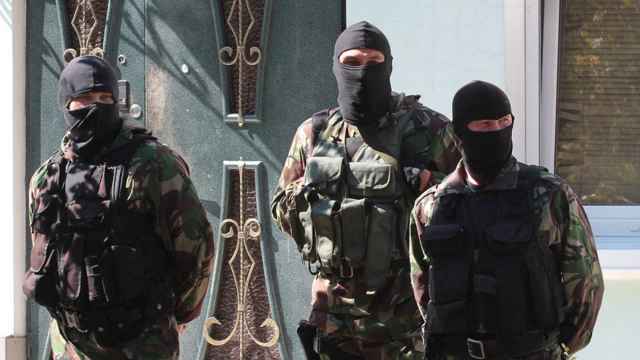Russia said on Wednesday it had blocked the Swiss email service ProtonMail, popular among journalists and activists for its focus on user privacy and high level of encryption.
Russian communications watchdog Roskomnadzor said ProtonMail, which uses end-to-end encryption to protect user data, had been used to send fake, anonymous bomb threats.
Such threats have frequently led to mass evacuations of public buildings across Russia.
Roskomnadzor said that ProtonMail had refused to provide Russian authorities with information on the owners of email accounts allegedly associated with fake bomb threats.
It said these had been sent via ProtonMail since last year and that incidence had increased this month after a similar service, Smartmail.com, was blocked.
Protonmail denied having received any requests for assistance from Russian authorities and said the block would do nothing to stop bomb hoaxes but rather only limit ordinary Russians' access to privacy in communications.
"We have received reports that ProtonMail and ProtonVPN are currently partially blocked in Russia. We are reaching out to the appropriate authorities to get the block lifted as soon as possible," it said in a statement.
It said any perpetrators seeking to continue sending false bomb threats could resort to another email service or continue to access ProtonMail via a virtual private network (VPN).
"We condemn this block as a misguided measure which only serves to harm ordinary people," ProtonMail said.
Russia has increasingly introduced restrictions on internet use, including requiring messaging services to share encryption keys with security services and asking social networks to store users' personal data on servers within the country.
A Message from The Moscow Times:
Dear readers,
We are facing unprecedented challenges. Russia's Prosecutor General's Office has designated The Moscow Times as an "undesirable" organization, criminalizing our work and putting our staff at risk of prosecution. This follows our earlier unjust labeling as a "foreign agent."
These actions are direct attempts to silence independent journalism in Russia. The authorities claim our work "discredits the decisions of the Russian leadership." We see things differently: we strive to provide accurate, unbiased reporting on Russia.
We, the journalists of The Moscow Times, refuse to be silenced. But to continue our work, we need your help.
Your support, no matter how small, makes a world of difference. If you can, please support us monthly starting from just $2. It's quick to set up, and every contribution makes a significant impact.
By supporting The Moscow Times, you're defending open, independent journalism in the face of repression. Thank you for standing with us.
Remind me later.






